
If your feed is anything like mine, you get a constant stream of newsy horticultural information every time you look at your phone. Many of these articles, memes, and posts are pretty good, or at least not harmful. But some ideas that keep popping up are either useless or potentially dangerous to either you or your plants. Here are a few particularly ridiculous social media fictions that we should all avoid sharing.
Myth 1: Oil and vinegar will wipe out weeds
Homemade weed killers have been making the rounds on social media ever since I first ventured onto Facebook over 15 years ago. Almost all of the homemade weed killers you’ll see include vinegar or oils that supposedly kill plants more rapidly and “naturally” than something like Roundup can. The problem is that while vinegar and oil will rapidly kill the top of a plant by burning it, they won’t kill the entire plant, and so weeds will grow back by the roots. Of course, very small plants may be completely killed, but this is the exception rather than the rule. A final problem with vinegar and oil is that they can be very dangerous for amphibians, reptiles, insects, and other creatures that inhabit our gardens. Pulling weeds by hand is a much safer bet.
Myth 2: Ground-up vegetables make great fertilizer
There are numerous recipes that include mixing and grinding potatoes, tomatoes, onion peel, lemon, lentils, and other plant matter into water to be applied to plants as a fertilizer. Usually the solid parts are strained out and the liquid is applied to the soil or directly to the leaf. This practice isn’t so much bad as it is wasteful. All of these organic materials would be wonderful additions to a healthy compost bin. Why go to the trouble of partially extracting a few nutrients and discarding the rest of the material? It’s just silly and pointless.
Myth 3: Spicy, home-brewed concoctions will keep bugs away from plants
Everyone seems to have a “secret” recipe for a homemade insecticide that they are willing to share with the whole internet. Ingredients such as garlic, hot peppers, and even tobacco get a lot of social media attention as cure-alls for insect problems, but these claims are not based in science. Yes, a few of these mixtures can have some effect on insects, but it tends to be small and short-lived. Depending on what they contain, homemade sprays can also damage your plants by burning them or can be harmful to you. Hot pepper and garlic mist in the eye, anyone? If you are looking to use safer insect-control sprays, the best option is almost always to purchase commercial insecticidal soaps or horticultural oils. These products are formulated specifically to be both tough on insects and safer for your plants and for you.
Myth 4: Brewing compost tea is worth your time
The number of posts I have seen recently extolling the virtues of composting is off the charts. There are many types of composting, and most are absolutely wonderful. From vermicomposting (using worms to help break down table scraps) to cold composting (the easiest method, which consists of piling up food scraps, leaves, and other organic materials and then letting nature do its thing), there’s a composting style to suit almost everyone. However, the extraction and use of “compost tea” adds an unnecessary step to the composting process and can potentially introduce harmful microbes to the mix. Compost is full of nutrients that both helpful and harmful microorganisms love, and research has shown that brewing a batch of tea can boost populations of pathogens such as Salmonella and E. coli. Even for the experienced compost enthusiast, this practice has more drawbacks than benefits and should be avoided.
Myth 5: Ice cubes are an easy way to water orchids
There is a contingent of people, including some academics, who think that ice cubes are an appropriate way to water orchids. They recommend placing these ice cubes on top of the media in which the orchid is planted and then allowing the cubes to melt, thereby slowly delivering an appropriate amount of water to the plants. It sounds great, and some people have certainly had success with this method. Here at the UNC Charlotte Botanical Gardens, however, we have found that orchids watered this way slowly decline over the course of about six months, presumably because of the temperature of the ice cubes. A better method for watering is to take the orchids over to a sink and run lukewarm water over the roots for a minute or so about once a week. One thing you should never do is to let orchids sit in standing water.
Myth 6: Rocks improve pot drainage
An all-too-common recommendation is to place rocks, pottery shards, or other small, heavy objects in the bottom of a pot to help with drainage. Putting heavy materials in the bottom of a container may be useful if your container is made from a lightweight material, or if it will be in a location where it could be frequently knocked over by wind. However, rocks do not improve container drainage and will instead actually raise the water table inside the pot. Water will accumulate in the soil above the rock layer, and drainage will suffer. So skip the rocks and pottery shards and focus instead on finding a soilless mix that is well-suited to the plants you are growing.
Jeff Gillman, Ph.D., author of The Truth About Organic Gardening, is the director of the University of North Carolina Charlotte Botanical Gardens.
Illustrations: Savannah Gallagher










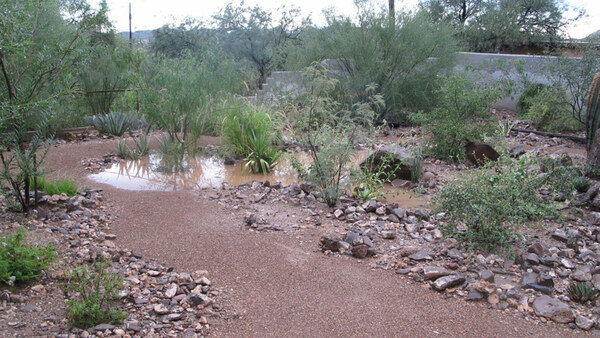
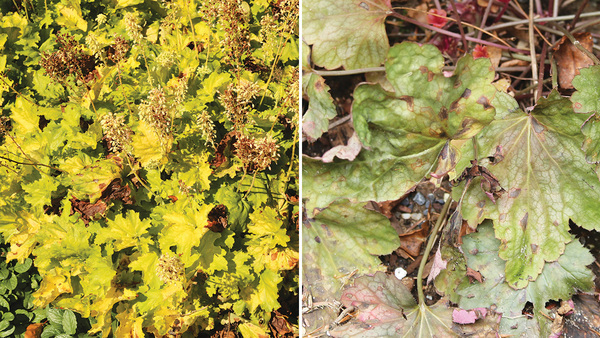
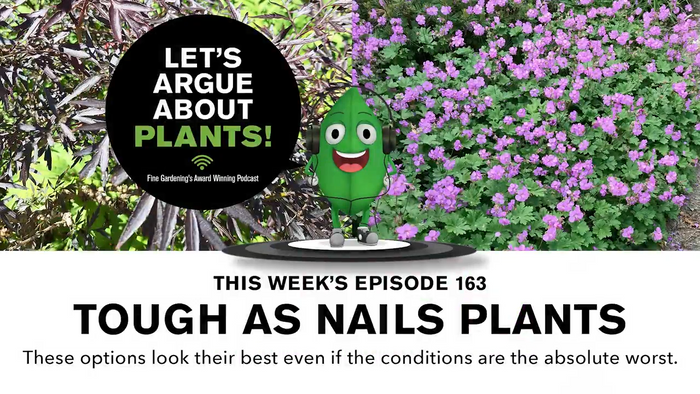
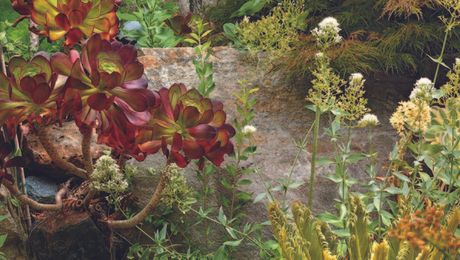
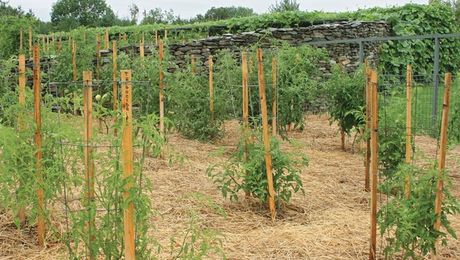









Comments
Log in or create an account to post a comment.
Sign up Log in